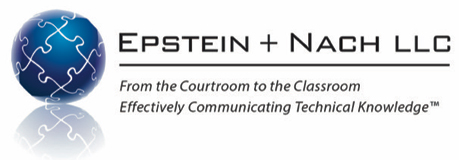Epstein + Nach LLC provides training courses for accounting firms in the following areas:
- U.S. and international accounting, auditing, financial reporting standards and practices
- Leadership, organizational, and interpersonal development
In addition, we offer the following services:
- Quality control technical consultation
- “Cold review” of financial statements on a pre-issuance basis
- Expert testimony in the areas of securities litigation, white collar defense, financial fraud, and accountants’ liability
- Valuations of business entities and securities for accounting and tax purposes
ABOUT THE INSTRUCTORS
 Mr. Ralph Nach, CPA, has been a practitioner for over 40 years and a skilled presenter/instructor for more than 25 years across the U.S. and internationally. He co-authored Wiley GAAP: Interpretation and Application of Generally Accepted Accounting Principles for 10 years and served as an audit partner in the National Office of Audit and Accounting for RSM US LLP. Click on the link for further information and a full biography on Ralph Nach.
Mr. Ralph Nach, CPA, has been a practitioner for over 40 years and a skilled presenter/instructor for more than 25 years across the U.S. and internationally. He co-authored Wiley GAAP: Interpretation and Application of Generally Accepted Accounting Principles for 10 years and served as an audit partner in the National Office of Audit and Accounting for RSM US LLP. Click on the link for further information and a full biography on Ralph Nach.
 Barry Jay Epstein, Ph.D., CPA (Inactive) is a leading authority on accounting and auditing, both domestic and international. His work centers around technical consultation regarding these matters. Barry is a practicing accountant and testifying expert who works with attorneys extensively in the areas of securities litigation, white collar defense, financial fraud, and accountants’ liability.
Barry Jay Epstein, Ph.D., CPA (Inactive) is a leading authority on accounting and auditing, both domestic and international. His work centers around technical consultation regarding these matters. Barry is a practicing accountant and testifying expert who works with attorneys extensively in the areas of securities litigation, white collar defense, financial fraud, and accountants’ liability.
Dr. Epstein is an accomplished educator who has taught at the university level at several prestigious institutions. Click on the link for further information and a full biography on Dr. Barry Jay Epstein.
 Natasha Perssico Escobedo, MBA, CPA, AM-ASA provides valuation services that include valuations of business entities and securities such as general and limited partnership interests, closely held business enterprises, estates, and employee stock ownership plans (ESOPs). Natasha also serves as an adjunct accounting educator at DePaul University. Her undergraduate and graduate courses taught include: Principles of Accounting, Managerial Accounting, Intermediate Accounting, Issues in Asset Valuation, and International Accounting and IFRS. Click on the link for further information and a full biography on Natasha Perssico Escobedo.
Natasha Perssico Escobedo, MBA, CPA, AM-ASA provides valuation services that include valuations of business entities and securities such as general and limited partnership interests, closely held business enterprises, estates, and employee stock ownership plans (ESOPs). Natasha also serves as an adjunct accounting educator at DePaul University. Her undergraduate and graduate courses taught include: Principles of Accounting, Managerial Accounting, Intermediate Accounting, Issues in Asset Valuation, and International Accounting and IFRS. Click on the link for further information and a full biography on Natasha Perssico Escobedo.
COURSE DESCRIPTIONS
2019 Accounting and Auditing Clinic (8.0 CPE Credits)
This full-day course provides in-depth, hands-on coverage of recent developments in accounting, auditing, and financial reporting. Strong emphasis is placed on the practical application of newly issued and/or effective authoritative pronouncements affecting practitioners who perform or supervise compilation, review, and/or audit engagements for small and middle-market, privately held businesses. Click on the link to learn more about the 2019 Accounting & Auditing Clinic.
2019 Accounting for Leases of Lessees (ASC Topic 842, 4.0 CPE Credits)
The half-day course on Accounting for Leases of Lessees provides in-depth, hands-on coverage of new ASC Topic 842, the revised lease accounting standard. Attendees will learn how to read, abstract, and analyze leases and other commercial contracts to determine whether they contain lease provisions that require separate accounting under the new standard. Separating lease components and non-lease components in a contract will also be addressed. Ideal for practitioners who perform or supervise compilation, review, and/or audit engagements for small and middle-market, privately held businesses. Click on the link for more information about the course Accounting for Leases of Lessees.
2019 Revenue from Contracts with Customers (ASC Topic 606, 8.0 CPE Credits)
2019 Financial Reporting Fraud Clinic (8.0 CPE Credits)
Financial reporting frauds that are currently endemic, posing threats to accounting clients, users of financial statements, and professional service providers, are the focus of this one-day training program now available from Epstein + Nach LLC.
Identifying and Responding to GAAP Disclosure Issues (4.0 CPE Credits)
This course focuses on navigating the complex maze of detailed disclosure requirements including workable, practical strategies for ensuring that financial statement disclosures in compiled, reviewed, or audited financial statements are full, complete, and understandable.
Fair Value Measurements and Disclosures (2.0 CPE Credits)
Comprehensive case study designed to resolve issues regarding how to classify and disclose assets and liabilities measured at fair value in the required tables of recurring and nonrecurring measurements.
Audit Risk Assessment (4.0 CPE Credits)
Attendees will learn techniques for applying the risk assessment standards as recently redrafted and for using risk-based auditing to ensure that audits are planned both efficiently and sufficiently.
Fraud Risk Assessment: Effective Interviewing Techniques (4.0 CPE Credits)
Tools and techniques for conducting effective interviews with client personnel at all levels are discussed. Coverage includes selection of individuals to interview, how to conduct the interview, selecting a distraction-free environment, questioning techniques, and documenting the results of the interview.
GAAP and GAAS Research Techniques (4.0 CPE Credits)
Interactive, hands-on session incorporating case studies that require participants to navigate research sources and use advanced search techniques.
Note: This is a hands-on course that requires computers with internet connectivity. To ensure participation, class size is limited to a maximum of 15 participants. Sponsoring firm is responsible for providing computers and a suitable training site with internet connectivity.
Introduction to Derivatives (4.0 CPE Credits)
Introductory course incorporating case examples of derivatives commonly encountered in practice. Emphasis is on identifying derivatives and advising clients on the proper accounting and disclosure implications.
Impairment of Long-Lived Assets (2.0 CPE Credits)
Practical application of the “events and circumstances” triggers that cause a company to review the recoverability of its long-lived assets to consider whether impairment has occurred.
Income Tax Accounting: FIN 48/ASC 740 – Uncertainty in Income Taxes (3.0 CPE Credits)
Understanding and applying FIN 48 including ensuring that disclosures are complete.
Income Tax Accounting: Introduction to Deferred Income Taxes (4.0 CPE Credits)
The application of deferred income tax accounting rules to “C” corporations is discussed, including how to review the adequacy and documentation of the computations and related disclosures.
Share-Based Compensation (2.0 CPE Credits)
This introductory session covers the basics of stock/share compensation, including examples of application to plans of private companies.
Website Development Costs/Internal-Use Software (2.5 CPE Credits)
Attendees will learn the practical application of rules requiring capitalization of qualifying costs. The session includes a comprehensive case study.
Analytical Procedures and Effective Engagement Planning (4.0 CPE Credits)
Hands-on workshop designed to reinforce the basic concepts of applying analytical procedures to audit and review engagements. Special emphasis is placed on designing substantive analytical procedures with an appropriate level of precision to uses as primary tests of significant assertions
Audit Sampling Applications (4.0 CPE Credits)
How to properly apply sampling including tools, techniques, forms, and checklists. Coverage includes: when to sample, how to plan the sample, techniques for selecting items from the population, the benefits of stratifying the population, how to evaluate sample results, and when and how to project sample errors to the population being sampled.
Contact an Accounting Course Instructor
Course designer and facilitator Ralph Nach is available at 847-372-6805 or via email to discuss your firm’s training needs.
